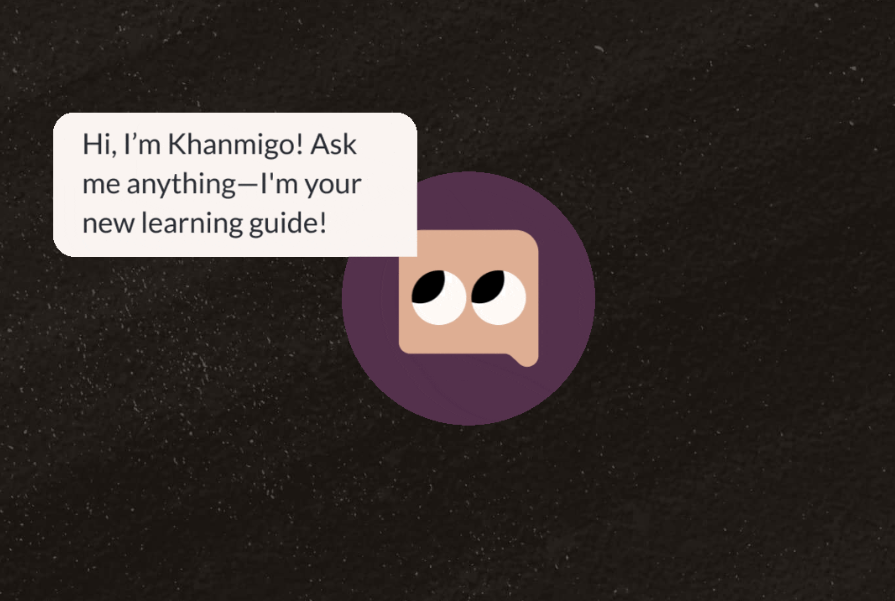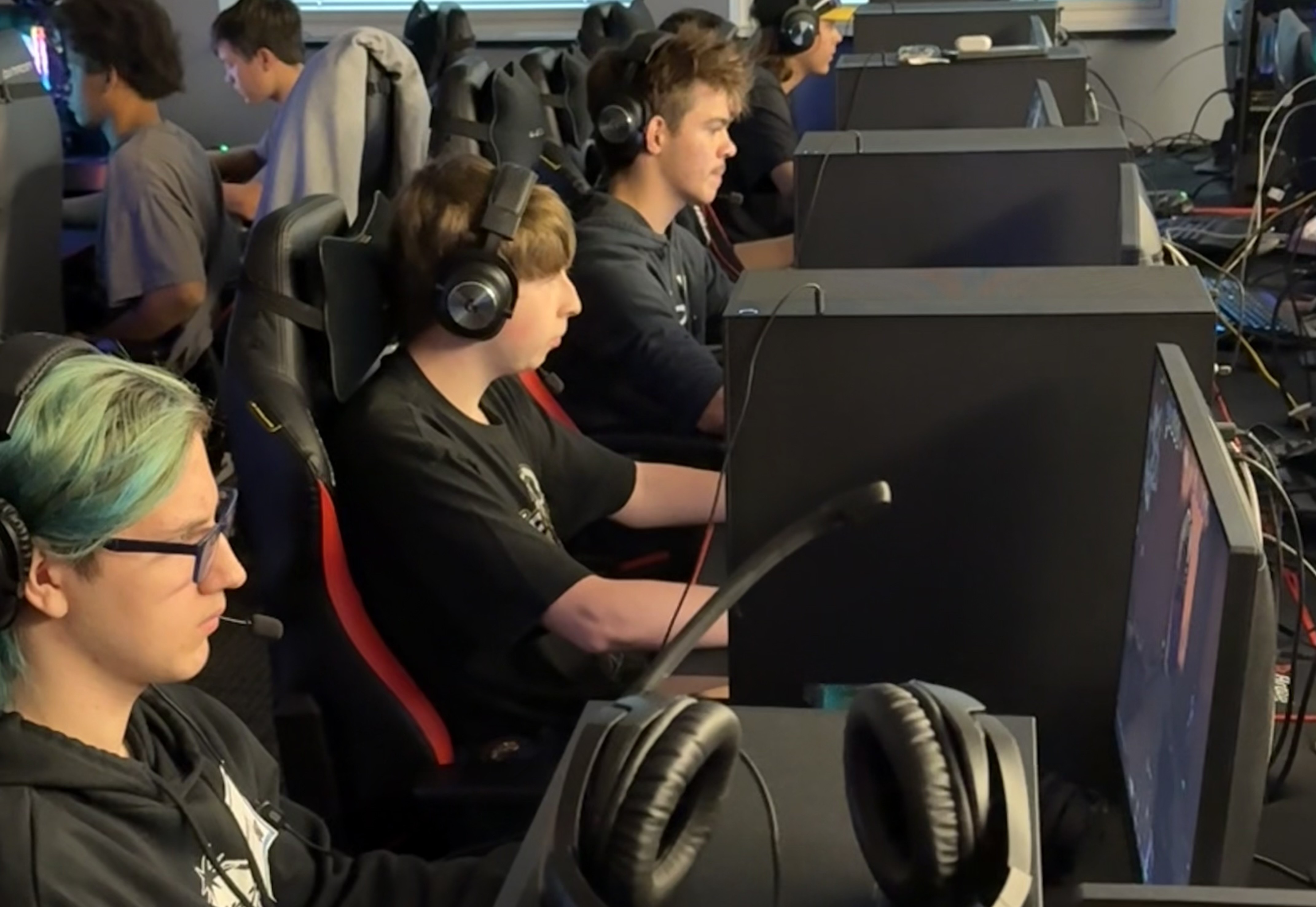What Is Khanmigo? The GPT-4 Learning Tool Explained by Sal Khan
Khan Academy’s Khanmigo learning guide is powered by GPT-4 and Sal Khan says it is so powerful that it feels like it has passed the Turing Test

This article was updated in April 2024
In March 2023 Khan Academy launched a pilot program for Khanmigo, a GPT-4 powered custom version of ChatGPT technology designed to serve as an interactive tutor for students. In the months since, Khanmigo has been made available to individual users as well as districts, though there is a fee associated with the tool to offset the costs of using GPT-4 technology.
Unlike ChatGPT, Khanmigo doesn’t do school work for students but instead acts as a tutor and guide to help them learn, says Sal Khan, founder of the nonprofit learning resource Khan Academy.
Here’s everything you need to know about Khanmigo .
What Are Some of Khanmigo’s Newer Features
Recently, Khan Academy released Khanmigo’s Academic Essay feedback tool, which can provide specific and actionable feedback on a student's essay. This can include timely and helpful suggestions on structuring an introduction, creating a proper academic tone, and building and supporting essay arguments.
“Within a year, we're gonna have a teacher be able to assign work with the AI and construct a writing activity including a rubric, and assign it through the AI,” Khan told Tech & Learning. “The AI doesn't just give feedback, but also helps with the process. ‘Here’s a thesis, let's do some outlining together. Let's find some data to back up your points.’ And then when the AI reports back to the teacher it's not just gonna say, ‘Here's the essay graded.’ It’s going to say, ‘Here's the essay, it took four hours. We had a little trouble coming up with a thesis statement but we eventually got there.’”
“Schools in New Jersey, Indiana, Arizona, and California helped us test Khanmigo during the first part of our pilot,” he adds. “Teachers used Khanmigo to do things like co-write lesson plans, lesson hooks and exit tickets. Students used Khanmigo to get help in math, science, and humanities.”
Feedback from students and educators has led to continual updates. “We learned a lot from them,” Khan says. “They shared recommendations that we put into place in Khanmigo, like adding more historical and literary characters for chat and adding a way to adjust the reading style.”
Tools and ideas to transform education. Sign up below.
How Did Khan Academy and OpenAI Join Forces for Khanmigo?
OpenAI contacted Khan Academy well before ChatGPT became a household name.
“I was skeptical initially because I was familiar GPT-3, which I thought was cool, but I didn't think it was something that we could immediately leverage at Khan Academy,” Khan says. “But then a couple of weeks later, when we saw the demo of GPT-4, we were like, ‘Oh, this is a big deal.'”
While GPT-4 still suffered from some of the “hallucinations” that large language models can generate, it had noticeably fewer of these. It was also dramatically more robust. “It was able to do things that seemed like science fiction before that, like drive a nuanced conversation,” Khan says. “I actually think that 4, if it's prompted right, feels like it passes the Turing Test. It really feels like a caring human on the other side.”
How Does Khanmigo Differ From ChatGPT?
The free version of ChatGPT is powered by GPT-3.5. For education purposes, the GPT-4-powered Khanmigo can carry on much more sophisticated conversations, serving as a more life-like tutor for students.
“GPT-3.5 really can't drive a conversation,” Khan says. “If a student says, ‘Hey, tell me the answer,' with GPT-3.5, even if you tell it not to tell the answer, it will still kind of give the answer.”
Khanmigo will instead help the student find the answer themselves by asking the student how they arrived at that solution and maybe pointing out how they might have gone off track in a math question.
“What we're able to get 4 to do is something like, ‘Good attempt. It looks like you might have made a mistake distributing that negative two, why don't you give it another shot?' Or, 'Can you help explain your reasoning, because I think you might have made a mistake?'”
The factual hallucinations and math mistakes are much less frequent with the Khanmigo version of the technology as well. These still happen but are rare, Khan says.
How Much Does Khanmigo Cost and How Can You Sign Up?
Anyone can access Khanmigo either through a personal account or through a district subscription. To sign up with a personal account, users need to be 18 or older and need to first create a free Khan Academy account. Then they need to sign in and choose a payment plan for Khanmigo, which is either $4 per month or $44 annually.
Educators interested in using the tool with their students need their district to subscribe to Khan Academy for Districts. For pricing details on district subscriptions, district leaders should contact Khan Academy directly.
“The districts that join us will help us continue to improve Khanmigo so that it meets their needs in the classroom,” Khan says. “This is a really exciting time for new districts to be on this journey with us. I think we’re on the cusp of one of the biggest transformations education has ever seen.”
To share your feedback and ideas on this article, consider joining our Tech & Learning online community.
Erik Ofgang is a Tech & Learning contributor. A journalist, author and educator, his work has appeared in The New York Times, the Washington Post, the Smithsonian, The Atlantic, and Associated Press. He currently teaches at Western Connecticut State University’s MFA program. While a staff writer at Connecticut Magazine he won a Society of Professional Journalism Award for his education reporting. He is interested in how humans learn and how technology can make that more effective.

